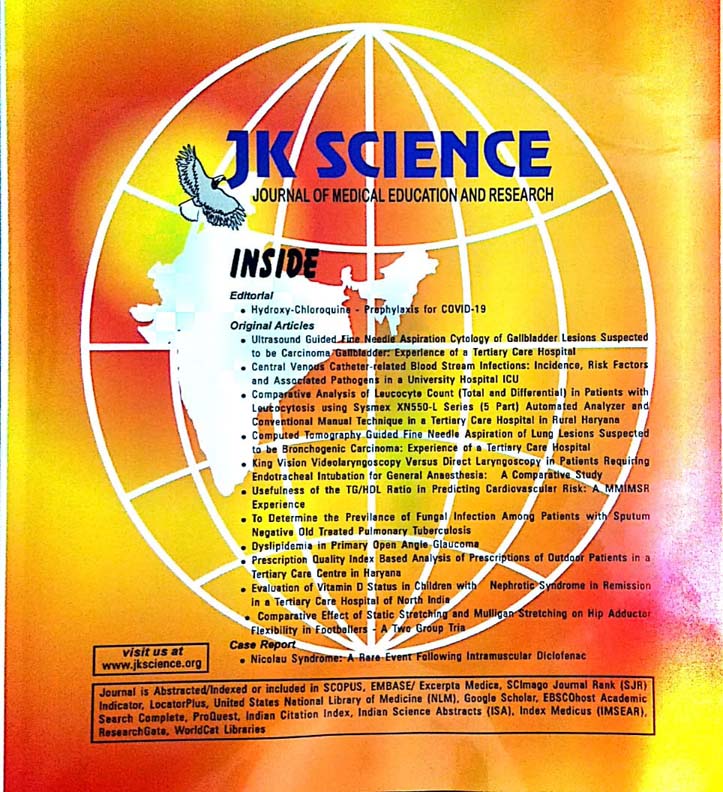Nutritional Assessment of Under Five Children of Slum Population of Jammu
Keywords:
Malnutrition, Nutritional Status, Slums, Under-fiveAbstract
Objective: To assess the nutritional status of under-five children living in slums in Jammu.
Design: Prospective descriptive study.
Material and Methods: Two hundred children (n=200) belonging to under 5 age group residing in the slums of Jammu were enrolled and screened for age, sex, history of breast feeding, family income and birth order of child. Also, children were assessed for clinical features of various vitamin deficiencies, anemia, skin and respiratory disorders. Indian Academy of Pediatrics (IAP) classification was used to classify children in various grades of malnutrition.
Results: Out of 200 children studied 20%, 17%, 13% and 6% of under -5 children were in Grades I, II, III and IV categories of malnutrition, respectively. Clinically moderate anemia was present in 64% of children. About 53%, 27% and 19% of children had features suggestive of vitamin D, vitamin A, vitamin B complex deficiency. Dental caries was seen in 26% children while hepatomegaly and splenomegaly were seen in 16% and 8% cases respectively. Skin and respiratory tract disorders were observed in 6% and 22% cases.
Conclusion: This study shows that about 19% of slum population belonged to III - IV grade malnutrition which is quite significant. These children did have features suggestive of multiple vitamin deficiencies. Proper Health education needs to be imparted to mothers to give adequate diet from early stages of life for growth which will thereby decrease mortality and morbidity in under 5 children due to malnutrition.
Downloads
Downloads
Published
How to Cite
Issue
Section
License
Copyright (c) 2022 JK Science: Journal of Medical Education & Research

This work is licensed under a Creative Commons Attribution-NonCommercial-ShareAlike 4.0 International License.





